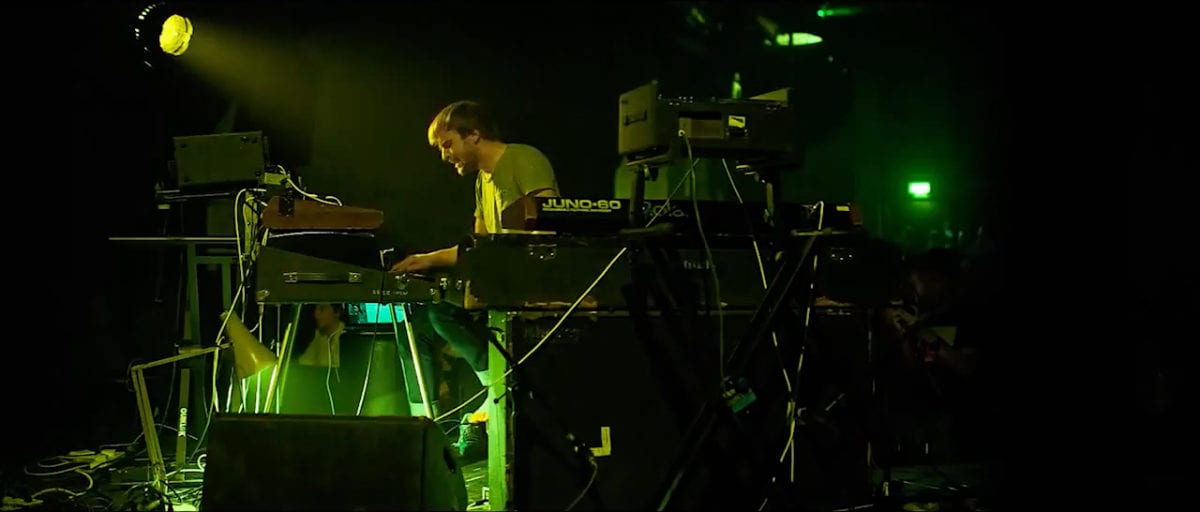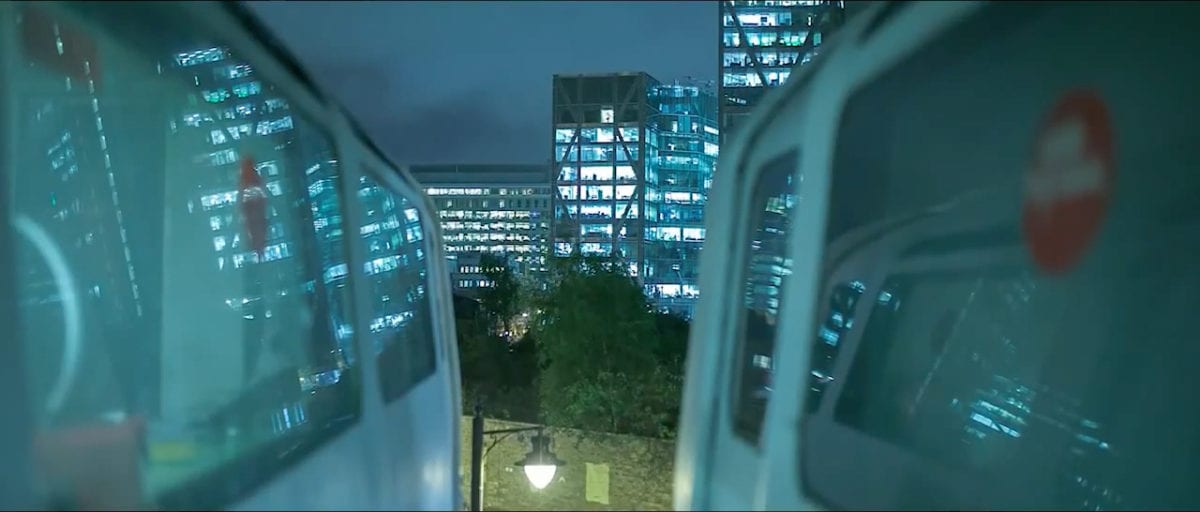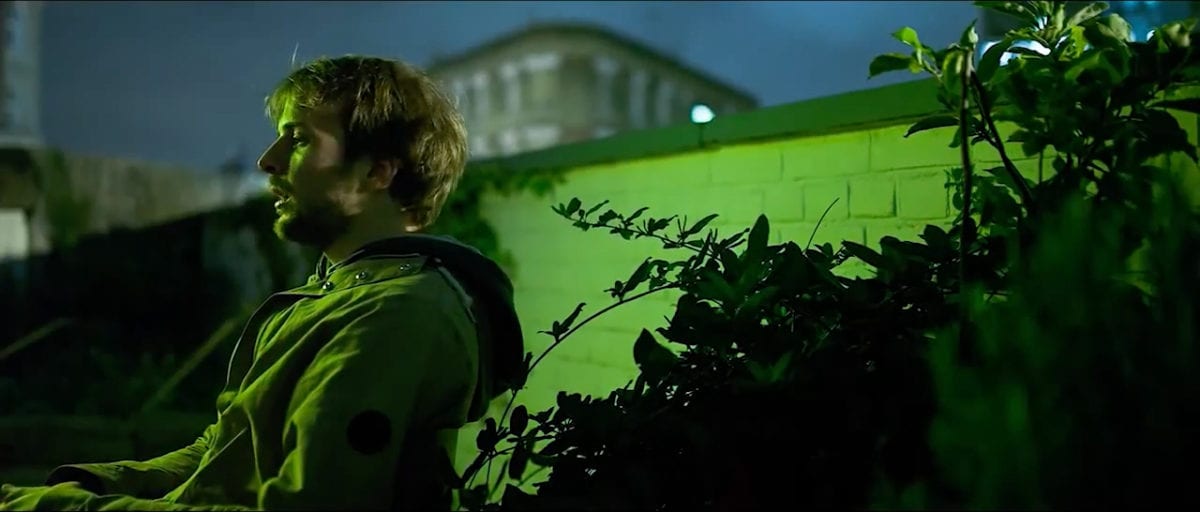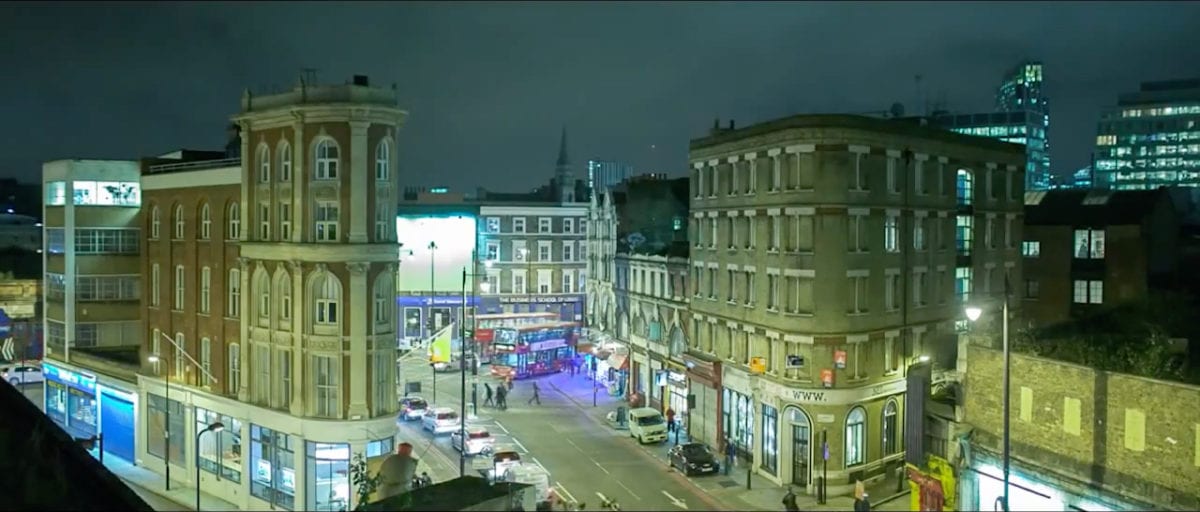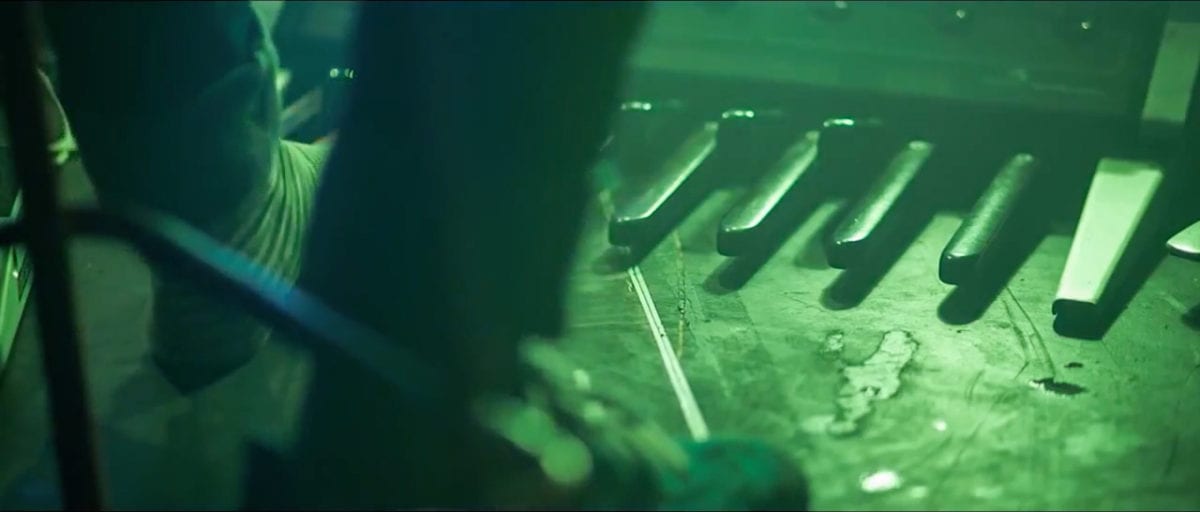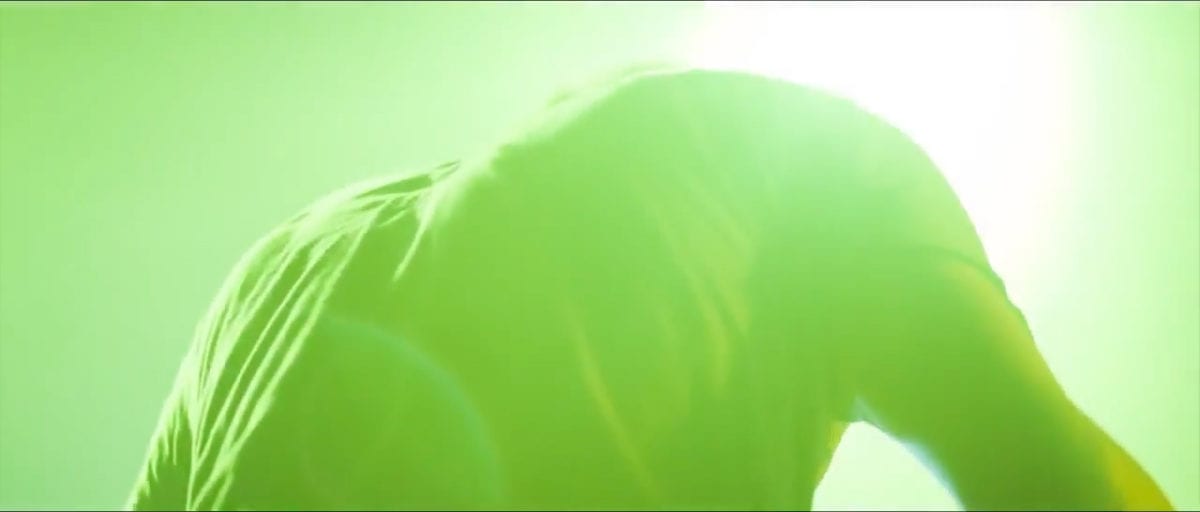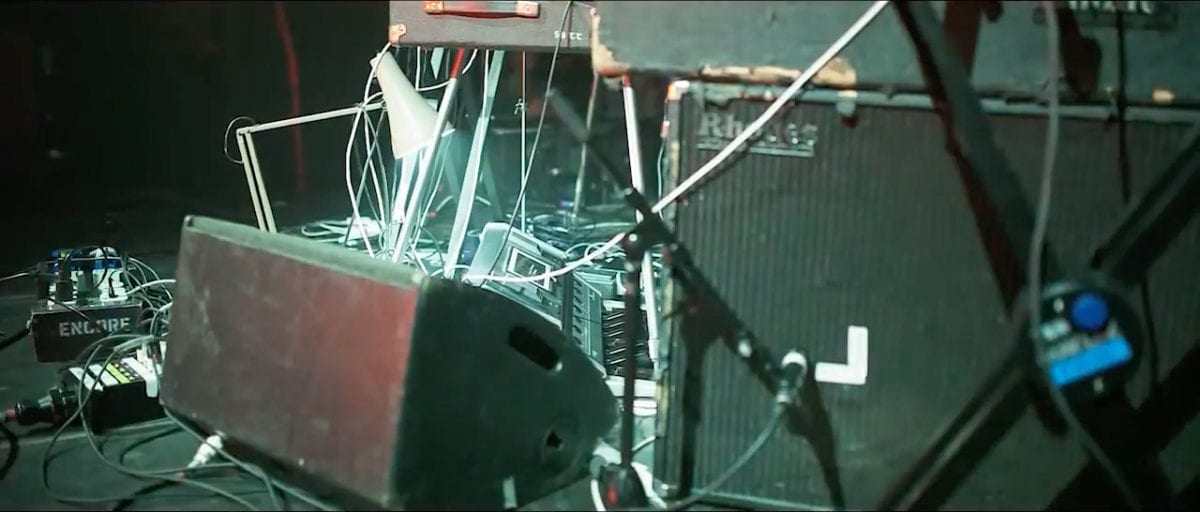We interviewed Nils Frahm on the rooftop of Village Underground at his first ever live electronic performance in London. The night itself was aimed to celebrate the electronic aspect of the record label and for those that attended will know how magical Nils’s performance was.
We were fortunate enough to capture part of this two part interview with Nils on camera. In the first part of this extensive interview we discuss Nils’s introduction to music via his father’s treasured record collection and what Nahum Brodski, Nils’s piano teacher had planned for his career, which he dramatically cut loose from at the age of 13.
Tell me about your introduction to music through your father’s record collection?
Now people have a lot more records it seems that the world is divided between massive collectors and people who don’t have any records. Even for his generation my father was really caring about music. It’s interesting to think of him as a guy of my age in the late 1970’s, waiting in front of venues to meet artists and I think now for labels like Erased Tapes and fans of the label who wait at my merch desk and want to talk to me about collaborations, doing photographs for me and album covers, it’s the same thing. Back then there was no Internet or anything, you just had to ride your bike everywhere and wait for the post or make an appointment.
What are you doing in London at The Hydra?
I came to London to celebrate the electronic aspects of the label Erased Tapes with The Hydra. They wanted to feature electronic music that appeals to us even though we are considered more classical musicians, since we share the same fascination and love for electronic music.
Police Sirens interrupt the interview…
There is one thing about London sirens. They’re very cheap. They’re not mighty sounding; it’s like a duck a little bit, as if they’re scared.
Not like German sirens then?
No. German sirens are probably made by Siemens and probably cost a lot of money and they last a lifetime and are really loud. They’re kind of massive sounding; London’s are more squeaking.
I’ve never really noticed that. It seems that some new cars have these really cheap sounding sounds, probably because they are trying to cut costs. They probably got a siren from China for $15 as opposed to $150, it’s loud, it’s ok, but it’s a good example of how costs compromise quality in any aspect of life. Everything gets a little bit more disposable and a little shittier.
Relating that to the music industry, how have you seen this being implemented growing up amongst music?
I’ve never seen people make money with records because in the time when people had big record deals and sold millions of vinyl releases I was probably too young to witness it.
I grew up in an environment where I wasn’t allowed to touch vinyl’s at all, and if I wanted to listen to one I had to ask my dad because he would never let me touch them, because they were valuable, it was a piece of art for him and he didn’t want the vinyl to get scratched. He made me feel like it’s worth a lot, more than I could ever afford. It’s the spirit of quality that I grew up with.
Now we are in a time where things easily just become a gimmick or a day’s news or even a minute’s news. Sometimes I post something on Facebook and I get a massive reaction within 10 minutes but in 20 minutes, most people probably forget about it, because there is a new post that people have to react on.
The times in-between things happening just gets less and less and maybe you don’t have to wait so long for something that excites you but for me it’s still the same. I still live in a time where I have to wait quite a while till I can see or feel something that I find quite remarkable. There are not many little things that I get freaked out and excited about. I wish I would get more excited about certain things happening today.
There’s always this romantic element of mine, when I listen to an old classical recording from the 1960’s or from the great composers who I know are dead, but when I listen to them, it seems like a miracle that I can still enjoy their music. It’s more interesting to listen to that interpretation rather than a recording that was done one week ago. Hopefully in fifty years my grand children will hear my new record ‘Spaces’ and will feel the same thing.
What I try to do is work on something that will be forgotten for a while, and then get rediscovered, and people can get a glimpse of how things were in 2013 when I released this record.
This is why I think quality is still king. When I make a vinyl release I try to make it so that the vinyl lasts a hundred years. I try to choose the paper that last the longest, I want the physical item to be on the flee market in a shitty box somewhere and people to still find it. I don’t believe it that people will find it on Soundcloud, as Soundcloud probably wont exist, and all its content will be exploding into a million pieces and I don’t believe in all that, it’s so abstract to me. I still like books and physical items and things that you can pass onto people and make it a present and I can’t give somebody a link for a present, it’s not possible.
What is your approach to releasing new records?
There’s one part of me fighting everything about news, what is the big news today? I’m skeptical about tomorrow. Not everything is bad but I have a filter and I try to pick out the things that are timeless. Maybe it’s because I am scared of time, scarred of it passing, I’m passing, I will be gone at one point, so will you, as well as everyone around us now will all be gone. It’s nice to imagine that all of these items that we leave on this planet will survive on their own. For me it’s not about making money with vinyl or CDs, I want the physical item to be there in the world somewhere; they sit on different shelves and all have their own biography these little items.
Things on a server that everyone can access simultaneously, I try to imagine a book where a thousand people are trying to read the same book, and it’s not possible, so yeah I still don’t get a lot of all the new technologies and methods for distributing music.
I’m also not certain that it’s a good thing that everything is so liberalised, free software and music. You can make music a lot more easily. I mean Kraftwerk had to build their synthesizers to make the music they envisioned. There are a lot of people that work with Max MSP these days’ and program instruments that nobody had heard before. I hope for all of these people that the sounds and inventions that they make now will have as a radical effect as Kraftwerk had to music.
Hopefully in 50 years time the things we do now will still hold up against the things from 50 years ago where the music industry was at its very blossom. Back then there was just money in music everywhere, people had the biggest budgets and orchestras and amazingly talented people around them, they all had so much possibility. But there were fewer people back then who were into art and music. They might not be as deep into that as the elite back in the days, but maybe it was the same back in the days, a hobby band in the basement, never had the chance to self-release or upload a link to Soundcloud. Now a lot of these hobby bands have been forgotten.
I also wonder why people go to Africa and find old records from the 50’s covered in dust and reissue them on reissue labels. People seem to have a strong desire to go back in time and get something from that spirit back in the days. I hope in 50 years time people will feel that about the beginnings of the digital age and what it did to people and what it inspired them to do.
I’m maybe leaning towards a negative assumption, a lot of what we are doing is not as important as how we celebrate it now. That’s why I’m quite skeptical about celebrating anything, maybe even tonight. I’m always a little bit heavy hearted about all of these things, how much appreciation does what I do deserve? It’s also my personal flaw I think; I wish I could be more excited about things. On the other hand it’s always the element in me that brings me back to my working desk, I need to try harder as my stuff was not good enough. Maybe this is the attitude where you create things.
Tonight is the party of Erased Tapes and it’s where we are supposed to celebrate electronic music. I have a hard time with electronic music sometimes, I love it, but sometimes I feel that in a few years I won’t love it.
That’s why I lean towards something like the piano, it’s a good vehicle for music, it’s a timeless Cadillac. It will always be beautiful but will that plugin, beat or this computer program appeal to us, or will we just laugh about it, like Acid House 12”s from 1993. There’s something funny about it but nothing that appeals to me, it’s just wrong sounding.
Tonight I will play an electronic set and now I’m kind of regretting it because I probably won’t like what I am doing in a few years. Maybe everybody will tonight, but if I listen back to it in twenty years I might not. I have no idea; maybe I’m just too negative about myself. This is the first electronic set that I have ever done.
With these thoughts about creating timeless music, where did this all stem from, was this engrained into your head by your teacher Nahum Brodski? Can you explain your relationship with your teacher and his influence on your musical landscape?
My teacher taught me to play the piano in the proper way, or maybe even in his own way, I cannot compare it to any other teacher. He had a vision of how children should learn the piano and there was no doubt that he was right because he did it so many times and he was 70 when I was introduced to him.
I trusted him because he was a granddad and he was very, very good. I trusted him and then I had to dis-learn what he taught me in order to overcome him, because what he envisioned for me was something that I could not be. He wanted me to be the new piano guy. He loved eastern European composers and Tchaikovsky. I had my own musical heroes who were still around and alive. I couldn’t imagine being one of the 10 musicians out there who could make a career out of it.
I was practicing so hard to make my parents and teacher proud and to fulfil their expectations and I just gave up on all of it. I think whatever I did after that, when I was 13, was that part of me always wanted to show my teacher that I wanted to find my own way to impress him.
But he’s not impressed by it. I put a CD in his mailbox, because he is very old now, I think he’s 89 years old and I don’t even know if he can still listen to music anymore. I don’t have contact with him anymore, so I put a CD in a package with a note and dropped “The Bells” off one evening and hoped that maybe I would hear something from him…maybe he likes it? But I haven’t heard anything, maybe he didn’t get it or doesn’t have a CD player…I have no idea.
Maybe he was expecting a vinyl record?
Haha, yeah he still had vinyl! So I don’t know, I still wonder that if all my ambition in music and what I want to do with it, has something to do with him being disappointed of me, because I dropped him. I said I quit and he couldn’t believe it, he was on a mission with me, he wanted to form me into what he envisioned for me.
I just told him “I bail out, I’m actually too lazy to practice six hours a day, I want to enjoy life, I want to make experiences, I want to date girls, I love electronic music right now, I just don’t give a shit about Tchaikovsky.”
Now I see it differently I am older now, I’m amazed by classical music but it doesn’t bother me that I can’t play the most complicated concertos because there are so many people that have devoted their lives to recreate what someone has already done. And that’s fantastic because there is always somebody good at that.
I wanted to be good at something that is really personal. There’s definitely a journey inside of me and I want to see what is inside of there. What colours, shapes and sounds and all the other stuff that I can add to music and stick out a bit.
That’s what I realised when I was introduced to Thelonious Monk, one of the most amazing jazz pianists and composers, you can always recognise his time and touch. I was really impressed with that.
If somebody sits at a random piano, no matter what type or brand it is, can you always hear that person? How does it work I thought, it was interesting, I wanted to know.
Is you music a reflection of personal life experiences or travels?
I don’t know I cannot disconnect it from my life. Does the coffee that I drink in the morning influence my music? You can never know what makes a difference in your life, because you only have one life and there is no alternative.
I once said that the music I make inspires my life, because I’ve got to meet you today on this roof. The life I have inspires my music, so it’s kind of a closed circle. It all makes a difference even if you’re bored or excited. It’s important to be happy and sad.
I try to drink every cup that is served to me. If somebody serves me a pot of piss then I have to drink it, if somebody gives me a pot of amazing wine I’ll drink it. I try to enjoy it because I know it will get me somewhere, going through a hard time will make me stronger. It can all translate into music.
I realise that some of my music is good, because tomorrow I’ll have a hard time making new music, sometimes I think I will never be as good as I was and that frustrates me. Then I think everything is going down hill, like after John Lennon met Yoko Ono, although I cannot compare my music to a genius such as him.
It is so wonderful when you wake up, play a song and record it and realise that this song is great. That’s all that drives me; you are only as good as your last piece of work. The longer you stretch the time in-between the more anticipation and expectation you create. I love that thrill of not being able to know. It’s like the game Jenga, can you take out one more block and put it on top, you don’t know! Making music gets harder the older you get.
How much time have you spent in London?
I’ve probably been here about 30 times, but the longest was only 5 days in a row. So maybe 2 months in total.
Did you go partying in London much?
Yeah, when I was younger I did a lot. I went to London with my friends to record shop, which was sad because you couldn’t listen to the records in the shops. In Germany you could listen to the records, now they’ve changed it, so you can listen, but back then you just had to buy it, and if you didn’t like it, sell it. So I spent all my hard earned money on records that looked interesting but sounded shit.
We went to Fabric and all those famous places back then, I was a big fan of DJ Shadow, DJ Krush, DJ Die and all these drum and bass artists. I wanted to be close to that, I thought it was the most groundbreaking music. So London was always just a golden music mecca for me, there was nothing to compare it to.
How does London compare with Berlin?
Now we have Berlin, which is coming up and up, but nobody knows how big the hype can inflate it. London is wonderful in its own, cruel, awkward and beautiful way. It’s impossible to describe what you like about a big city. Of course I like it but I also think it sucks.
Every big city reminds me of why we will be gone soon. When you see it from a plane it looks like a skin disease to me. You see the nature, you see its surface, you see the planet and you have these things which look almost like a cancer and that’s exactly what it is. Whatever hype you create about it, it is all pretty naïve.
In the end we distract ourselves with beauty. Maybe you see a painted wall where the colour is coming off and you think it’s really nice because you can see time happening, that things are passing, things are always changing. But in the end it’s just poisonous and the wall will eventually be gone, and in the end this is just an ugly city, which smells like dog piss.
Whatever we put our romantic abilities to; to turn certain realities into something totally different, it’s what makes us really able to enjoy life in a place like that.
In some ways I don’t give a shit if I’m in New York, London, Berlin, Hamburg, Rome or Paris. For me it’s just really important to meet good people. London is very compact so there’s a good chance of meeting some very exciting people and that’s what is really important to me. Interaction with people and learning from them and maybe even teaching them something and having that exchange – that’s all that matters.
Let’s talk about experimentation and improvisation when playing live and in your new album ‘Spaces’.
Improvisation is a beautiful subject to think about. Improvisation is what we are doing now.
In the jazz world you have a few chords written down. You have C minor, F sharp and that chord, then you ask me with a trumpet to just improvise on top of that, that’s what we are doing right now and that’s exactly what improvised music is, just a concept. We have the language, we have the words, I know the chords, you know the chords, we have 12 tones and we know that grammar is important, you can’t put that word in front of that one…it’s exactly the same as talking to people, that’s what improvised music is, it’s a conversation. It follows certain rules, but what makes it really magical to me is that you don’t get any clear sense out of it; you just create instant emotions.
If you read poems by Rainer Maria Rilke they touch you too. It goes through your brain, through your understandings, through your logic, through your process and then lands in your heart somewhere and you hear something.
Music goes into your ear and you decide if you just send it straight to your heart, some people like to put it through the brain first and then the heart and you’re like ‘interesting, there’s the counterpoint… I’ve never heard Bach doing that in Bar 36’. Basically you have to understand it logically to have transcendence and great improvisers have to know a lot about music to do what they are doing.
For example, if I was to talk to someone from China who doesn’t speak any English, and only because of the sound of my voice, or how I say things he would start to cry. It’s very unlikely that this would happen, because its not enough, he needs to understand something to cry.
But with music you don’t need to understand it. It’s like a totally alien language. You hear it and some part of your body understands it. That’s what happens with improvisation.
When you play with a group of people and improvise together, I will fall in love with that person when it works out, but if it doesn’t I will hate that person so much because they are playing shit. If the conversation doesn’t flow I get really mad, of course I don’t say anything because I don’t have the guts to.
In the jazz world, people would kick each other off stage; if the piano player destroyed the session they would punch him, because it’s so important, it’s a group effort.
Improvisation is also the perfect meditation about risk and knowing, the uncertain and knowing. You get curious and play one note where you don’t really know what it will do to the whole sound and maybe it’s wonderful or maybe it’s bad and you have to rescue it and it happens so fast that time stops.
All of a sudden you are totally alive in the present and there’s no time to think about the past and the future. You are so wrapped up in what’s happening. After I play improvised concerts I feel refreshed, like I’ve slept for weeks, because I meditated. I was sitting there totally in the present, nothing could distract my thoughts, I wasn’t thinking – ‘I’m not beautiful, I need to do this, do I suck?’, there are no doubts about anything, I was just so into it.
That’s what I never felt from classical music, because I was always so busy getting into the concert for somebody else or getting into somebody elses’ music. With improvisation you just pace yourself in a wonderful way. It’s the counterpoint, which makes everything worthwhile, when I feel bad I have the piano and I can meditate for an hour or even the whole night.
It’s like medicine, really. It’s so important to me. Without that I don’t know where I would be. Everything would be so much harder.
Let’s talk about radio stations, they frequently playlist the same tracks over and over to their audiences. What do you think about their role in educating the masses with music?
It’s so hard for me to judge anybody. I don’t really want to judge anyone for not liking my music, or the same heroes of mine. It doesn’t make me feel that person is stupid or anything, it makes me sad if someone doesn’t like it, there is so much beauty to find there and if someone doesn’t pick it up, or prefers Kentucky Fried Chicken and that R.E.M song they know inside out, then I don’t think its bad – this R.E.M song is probably really good because it makes a difference for so many people, there must be something beautiful in it. What’s bad for us is if everyone over does it and it doesn’t leave much space for anything else. That pisses us off more intuitively.
When radio stations only play the things that they know will sell or that people like already, then they have less time in 24 hours to play new music they would risk something with. It’s a business, they don’t make music, they play music and they need to make a living from it.
So it’s all this big combined effort of musicians and music industry people, and it’s all too easy to bash it all, I need them. I need people who organise my work and to post about it, and who do promotion or whatever. I think its not bad at all, its just a little sad that all the popular music is designed to be so convenient that our ears get used to it, like we get used to certain food. People in China eat dogs and they like it and we don’t eat dogs because we are not used to it.
It’s the same with music. People who bash experimental music, – John Cage who thinks ‘This is horrible, what is it, it’s just noise’, it’s so narrow minded.
Of course I have moments in life where I am the same, where I just don’t want to expand my understanding. Life is a difficult task, it’s hard to make everything right and politically correct. Trying to like everything is too much, you have to dislike stuff. Disliking stuff also brings people together. When I dislike R.E.M, you’re like ‘cool, I dislike them too.’ We must be kind of connected. That’s what music does, its just transportation, it’s like a vehicle that brings people together.
When you have your first date, it’s really important what record you put on to get the kiss. Music is used in diverse ways to make life more beautiful for people, that I don’t really know why someone feels so close to a certain song. It brings back a memory, which whenever they hear it brings back the same joy. So how is it possible to say it’s horrible that they play this song on the radio all the time? It’s totally fine. I wish my music was played on the radio!
What legacy do you want to leave when you’re no longer alive?
I just wish that the people then can still take a bath and I hope that people can still drink the water out the tap. I want people to have it easy and nice and I want things to be obviously less crazy, all the stupidity sometimes drives me nuts.
It’s my biggest effort to just understand it, to just take it in as a phenomenon that I shouldn’t judge. It’s really the hardest effort to accept it, to just see the beauty in it. I hope for my own sake, I’ll die with a smile on my face, with trust that things are all right. And that all the energy that I have now, that is sometimes so conflicting, that can make me feel so bad or so wonderful in alteration, when all that calms and I can see that my best moments are as beautiful as some of my saddest. It’s all sourced by the same energy, and it’s all so closely connected. So basically become the monk under the olive tree. I just really want to smile.
It’s just a wonderful idea that I will get there at some point. I hope I will make it long enough.
Do you have any words of wisdom?
No, that’s my main problem. My wisest moments are when I sit with my instruments. That is when something true or honest might come out. Whatever I’m saying I don’t believe myself, I listen to myself now, I regret already the moment I say them. I wish I didn’t look the way I look, I wish I didn’t say things a certain way when I say them. I just feel comfortable making music and I’m able to say things that people understand. I’m not Bob Dylan, I can’t make it through words, he changed the world with words, his guitar and harmonica playing was good too but it’s not the key, its not the essence of his work. He was an idol.
It would be wonderful to be an idol for some people, to inspire people. But not with words, I don’t want to be remembered for a really good sentence. It’s not happening. But maybe I’ll get remembered for this ‘Tristan chord’ (a chord made up of the notes F, B, D♯ and G♯). Wagner did this one chord that people still call the ‘Tristan chord’, it was the first time that someone used this particular note in a chord because nobody had the guts to use it. That’s amazing.
If someone will ever speak of the Nils Frahm movement or whatever…that would be really, really flattering.
Video by Jaroslav Moravec for Inverted Audio
